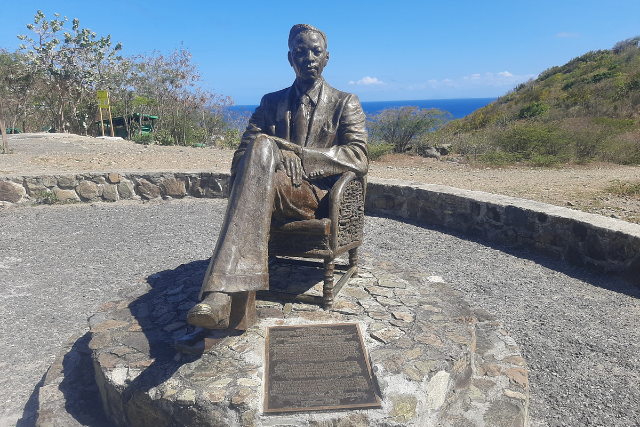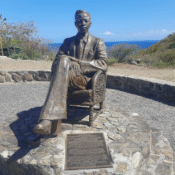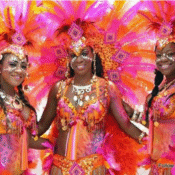William Bell: The Quiet Visionary of St. Maarten’s Vibrant Legacy

William Bell: The Quiet Visionary of St. Maarten’s Vibrant Legacy
The Quiet Visionary of St. Maarten’s Vibrant Legacy
Nestled in the crystalline waters of the Caribbean Sea, the island of St. Maarten stands as a testament to the resilience and vibrancy of its people. Amidst the sun-kissed beaches and the effervescent culture lies a rich tapestry of history, interwoven with the stories of individuals who shaped the island into what it is today. One such individual is William Bell, a name that might not ring as loudly as others but whose impact is indelibly etched in the annals of St. Maarten’s heritage.
The Early Life of William Bell
Born in the early 19th century, William Bell came into a world of dichotomies—a place where the natural beauty of St. Maarten starkly contrasted with the social and economic challenges that its inhabitants faced. The son of a modest family, Bell’s early years were marked by an education that transcended the typical constraints of the time. His parents, understanding the value of knowledge, ensured that he was well-versed in both the academic and practical aspects of life.
Bell’s childhood was an immersion in the island’s rich culture. He grew up surrounded by the rhythmic beats of Caribbean music, the tantalizing aromas of local cuisine, and the vibrant stories of his ancestors. This environment instilled in him a deep appreciation for his heritage and a burning desire to contribute to his community.
The Visionary Entrepreneur
As Bell transitioned into adulthood, he became increasingly aware of the economic disparities that plagued St. Maarten. The island’s economy, primarily based on agriculture and fishing, was vulnerable to external forces such as hurricanes and market fluctuations. Bell envisioned a more resilient and diversified economy that could withstand these challenges.
With an entrepreneurial spirit, Bell ventured into various businesses, each aimed at bolstering the local economy. He invested in sugar cane plantations, understanding the global demand for sugar and its by-products. Unlike many plantation owners of his time, Bell introduced innovative farming techniques that improved yields and sustainability. He championed the use of crop rotation and organic fertilizers, which not only increased productivity but also preserved the fertility of the soil.
Bell’s ventures were not confined to agriculture alone. He saw potential in the island’s nascent tourism industry. Recognizing St. Maarten’s natural allure, he invested in the development of small inns and guest houses, creating a fledgling hospitality sector that would one day grow into a cornerstone of the island’s economy. His vision extended to improving the island’s infrastructure, advocating for better roads and ports to facilitate trade and tourism.
A Philanthropic Heart
William Bell’s business acumen was matched only by his generosity. He believed that true success was measured not by personal wealth, but by the well-being of the community. His philanthropic efforts were numerous and far-reaching. He established schools to ensure that the children of St. Maarten received a proper education, believing that knowledge was the key to a brighter future.
Bell was also instrumental in the establishment of healthcare facilities on the island. At a time when medical resources were scarce, he funded the construction of clinics and provided for the training of local medical practitioners. His efforts significantly improved the health and longevity of the island’s population.
In addition to education and healthcare, Bell was a staunch advocate for social justice. He used his influence to campaign for the rights of the island’s laborers, pushing for fair wages and humane working conditions. His progressive views often put him at odds with the colonial authorities, but his unwavering commitment to justice won him the respect and admiration of his peers.
The Cultural Patron
William Bell’s impact on St. Maarten extended beyond economics and social welfare. He was a patron of the arts, recognizing the power of culture in shaping a society’s identity. Bell supported local artisans, musicians, and writers, providing them with the resources and platforms they needed to hone their crafts and share their talents.
He organized cultural festivals that celebrated the island’s diverse heritage, bringing together people from different backgrounds in a harmonious celebration of unity. These festivals not only enriched the cultural fabric of St. Maarten but also attracted visitors from far and wide, further boosting the local economy.
Bell’s own home became a cultural hub, where intellectuals, artists, and community leaders would gather to discuss ideas and collaborate on projects. His encouragement of creative expression helped foster a sense of pride and cohesion among the island’s residents.
The Legacy of Leadership
William Bell’s leadership was characterized by a unique blend of pragmatism and idealism. He was a man who could dream big but also had the tenacity and skill to turn those dreams into reality. His ability to navigate the complexities of business, politics, and social issues made him a revered figure in St. Maarten’s history.
Bell’s influence extended to the political realm, where he advocated for greater autonomy and self-governance for the island. He believed that the people of St. Maarten were best suited to determine their own destiny and worked tirelessly to reduce the island’s dependence on colonial powers. His efforts laid the groundwork for the eventual push towards self-governance and greater political representation.
The Final Years and Enduring Impact
As William Bell grew older, he began to reflect on the legacy he would leave behind. He spent his final years documenting his experiences and the history of St. Maarten, ensuring that future generations would have a record of the island’s journey. His writings are considered invaluable historical documents, providing insight into the socio-economic conditions and cultural evolution of the island during his lifetime.
Bell passed away in the late 19th century, but his legacy lived on. The institutions he established, the policies he advocated for, and the cultural renaissance he inspired continued to shape St. Maarten long after his death. The island’s evolution into a bustling tourist destination with a rich cultural heritage can be traced back to the foundations laid by Bell and his contemporaries.
A Reflection on Modern St. Maarten
Today, as one strolls through the bustling streets of Philipsburg or basks on the pristine beaches of Maho Bay, it is easy to see the fruits of William Bell’s vision. The island’s thriving tourism industry, its robust infrastructure, and its vibrant cultural scene are all testaments to the groundwork he laid.
St. Maarten has grown into a cosmopolitan hub, attracting visitors from around the world with its unique blend of Dutch, French, and Caribbean influences. The local economy, once reliant on the fickle fortunes of agriculture, is now buoyed by a diverse array of industries, including tourism, finance, and retail. This transformation is a direct result of the forward-thinking initiatives championed by Bell.
The schools and healthcare facilities that Bell established have evolved into modern institutions, continuing to serve the community and contributing to the overall well-being of the island’s residents. The festivals he started have grown into internationally renowned events, drawing artists and audiences from across the globe and fostering a sense of unity and pride among the people of St. Maarten.
Honoring a Legacy
In recognition of his contributions, several landmarks on the island bear William Bell’s name. The William Bell Institute, a center for historical research and cultural studies, stands as a testament to his commitment to education and heritage. The annual William Bell Festival celebrates his life and achievements, bringing together the community in a joyous tribute to one of their greatest benefactors.
Bell’s story is taught in schools, ensuring that each new generation understands the importance of his contributions to their island’s development. His life serves as an inspiration to young islanders, showing them that with vision, determination, and a commitment to the greater good, they too can leave a lasting impact on their community.
The Unseen Threads of History
The story of William Bell is not just a chapter in the history of St. Maarten; it is a testament to the power of vision and perseverance. It reminds us that behind every thriving community lies the dedication and hard work of individuals who dared to dream and took action to realize those dreams.
As visitors and residents alike enjoy the myriad attractions of St. Maarten, they walk in the footsteps of William Bell, benefitting from his foresight and generosity. His legacy is a reminder that true progress is built on a foundation of community, compassion, and an unwavering commitment to the common good.
In the quiet moments, as the sun sets over the Caribbean Sea and the island’s nightlife begins to stir, one can almost hear the whispers of history, echoing the dreams of a man who saw the potential of St. Maarten and dedicated his life to bringing it to fruition. William Bell may not be a household name, but his contributions have left an indelible mark on the heart and soul of this vibrant island, ensuring that his spirit will live on for generations to come.




